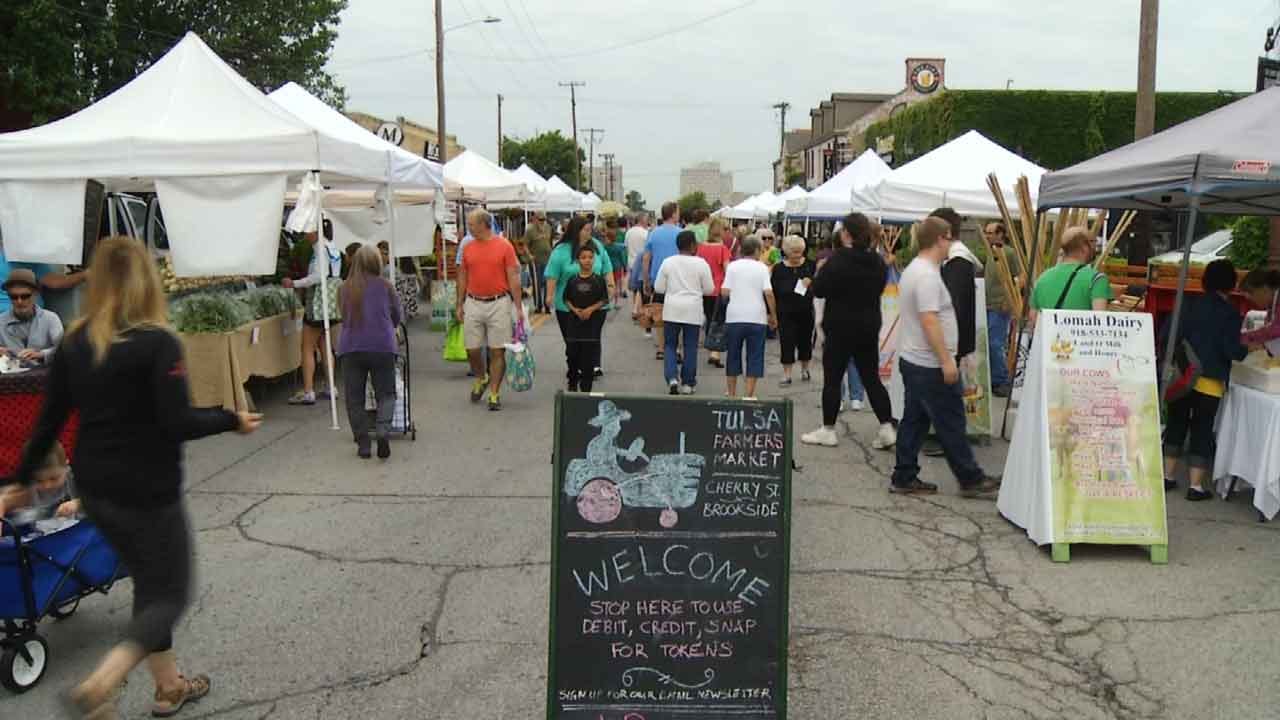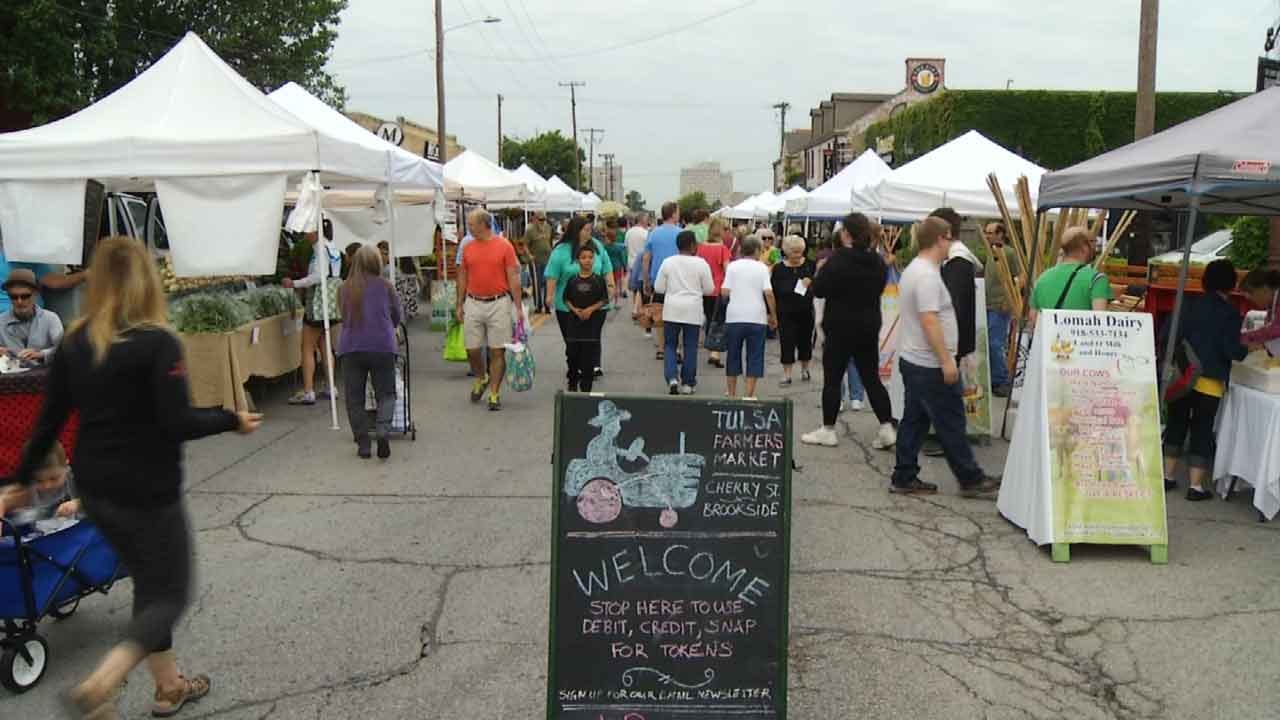Farmers Doing What They Can To Increase Interest In Local Foods Movement
<p>Oklahoma is 48th in the nation for vegetable consumption and 50th for fruit; but two local farmers are doing what they can to change those numbers and make Oklahoma 'So Much More.'</p>Wednesday, June 29th 2016, 11:12 pm
Mom was right; we need to eat our fruits and vegetables.
And though we love our mothers, as Oklahomans, we've ignored her advice.
So when we bring up the national rear in eating better food, we're that much further away from being ‘So Much More.’
Along the banks of Spring Creek, Mike Appel and Emily Oakley have staked a claim to better eating at their sustainable, small-scale, organic vegetable farm.
“It's more like getting food from your neighbor,” Oakley explained.
For 13 years, a decade of it in Cherokee County, they've enriched their soil, outlasted Oklahoma's extreme temperature swings and severe storms and bugs, stooped and sweaty and sunburned.
Special Coverage: So Much More
“But it's kind of what makes it fun and interesting. It keeps it, it keeps us on our toes,” Appel said.
For all their hard work, for all the beautiful, tasteful bounty that sprouts at Three Springs Farm - the turnips and lettuces, garlic and onions they carry every Saturday to Tulsa's Cherry Street Farmer's Market - for all the goodness they've devoted their lives to producing, collectively, we're not eating it.
“It has been frustrating in the fact that it hasn't grown as much as we thought it would in the last 13 years, in terms of more farmers, more customers, really like a vibrant local food movement here,” Appel said.
Oklahoma is 48th in the nation for vegetable consumption, 50th for fruit - dead last.
So while we're passing it by, whether at the farmer's market or the grocery store, being last in eating fruits and vegetables is a big reason Oklahoma is a national leader in heart disease, obesity, diabetes and stroke.
And even in this land of bounty, that's not something we turn around in a growing season.
Reasor’s registered dietician, Heather Steele said, “So now we have access to all these fruits and vegetables, so there definitely has to be a shift over several generations of adding these into recipes, teaching our kids at a young age to like fruits and vegetables. That they have a place at the table, too.”
Appel and Oakley settled in Oklahoma after traveling the world studying sustainable agriculture. They have advanced degrees in it, long years of working in community farming, and of studying how we feed ourselves with healthier, better-tasting, food.
“We're able to move here and have people really appreciate someone trying to grow in Oklahoma, ‘cause it's challenging, and there aren't that many of us,” Appel said.
They've grown a loyal customer base at the Saturday market, but would love to have some competition.
Appel said, “We're just on the cusp, I feel, of really creating that strong local foods movement, but we need farmers.”
In vast stretches of rural Oklahoma, it's grow it yourself or do without.
In north Tulsa, with no local grocery stores, a truck occasionally drives through with some meager choices.
And whether at a street market or supermarket, many of us are mystified at anything more exotic than tomatoes or apples.
That's Emily's ace-in-the-hole.
“Once you get the taste difference, and realize just how fresh it is and you can't even get a variety like this in the grocery store, that's what keeps people coming back,” she said.
Just not enough of them - and until there are, we've got lots of room to grow before we're a healthier state.
“People have to eat more vegetables, I mean everybody,” Appel said.
Mike and Emily have played a big role in advancing the "Double Up Food Bucks" program at the Cherry Street market. That gives customers who are in the SNAP program, the old food stamps program, double the amount of what they spend.
Buy $10 of produce, for instance, but actually receive $20 worth of product.
To boost fruit and vegetable consumption, and nutrition, it's in place at eight farmer's markets across Oklahoma.
More Like This
September 29th, 2024
September 17th, 2024
Top Headlines
December 15th, 2024
December 15th, 2024
December 15th, 2024
December 15th, 2024












